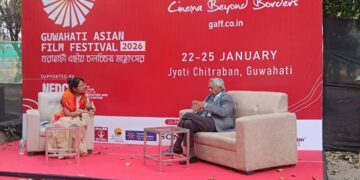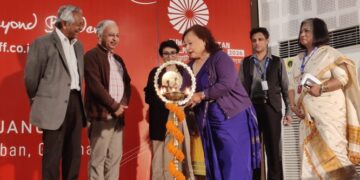Lucknow: Every hour, India registers an average of 51 first information reports (FIRs) related to violence against women—a startling figure shared by National Human Rights Commission (NHRC) Chairperson Justice V. Ramasubramanian at a national symposium held on Saturday.
Speaking at the second edition of the symposium on Women’s Safety at Work and in Public Spaces, the NHRC chief underscored the urgent need for systemic reforms, heightened public awareness, and stronger enforcement mechanisms to ensure the safety and dignity of women.
Justice Ramasubramanian also drew attention to the sharp irony between India’s deep-rooted cultural reverence for goddesses and the persistent, grim reality of gender-based violence.
Reflecting on the long journey toward the enactment of the Prevention of Sexual Harassment at Workplace Act, 2013, he called for ongoing efforts to bridge this gap through legal and social action.
Organised jointly by the NHRC and the Dr. Ram Manohar Lohia Chair of the Department of Sociology at the University of Lucknow, the symposium brought together scholars, legal experts, and human rights practitioners to chart practical strategies for tackling the widespread incidence of crimes against women in both workplaces and public spheres.
NHRC Joint Secretary Saidingpuii Chhakchhuak spoke candidly, sharing personal experiences to highlight how, despite existing laws, gender-based violence remains a daily reality.
“We need more than laws; we need commitment and change in everyday behaviour,” she said.
S.K. Chowdhury of the University of Lucknow echoed the need for deeper engagement.
“Awareness is important, but people must also be empowered to act. Structural change is crucial,” he said, advocating for a rights-based culture embedded in everyday social norms.
From a socio-anthropological lens, Prof. S.M. Patnaik of the University of Delhi delved into how patriarchy and the anonymity of urban spaces enable gendered violence.
ALSO READ: NCERT set to introduce new curriculum modules featuring Shubhanshu Shukla, Operation Sindoor
Quoting Carl Sagan, he reminded the audience, “Absence of evidence is not evidence of absence,” urging for gender sensitisation from an early age and robust support systems for victims.
Meanwhile, Dr. P.K. Gupta, Associate Professor at the University of Lucknow, focused on domestic violence, asserting that change must begin at the household level.
“Transforming individual behaviour is the first step toward societal reform,” he said.















